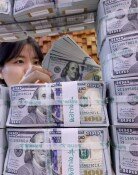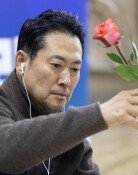Double Dip Fears
Nouriel Roubini, an economics professor at New York University, has gained fame for his prediction of the U.S.-triggered global economic crisis in 2008. In September 2006, he warned that the U.S. economy would be hit hard soon by a steep decline in consumption and an economic downturn stemming from the collapses of the housing market and financial institutions. At the time, optimism over the U.S. economy was dominant, so few paid attention to Roubinis dire prediction. With the world economy falling into recession two years later, he was called a crisis prophet.
In May this year, when the global economy seemed to have overcome the crisis thanks to massive fiscal spending around the world and global coordination, Roubini also warned against reckless optimism over economic recovery. He said the situation could further worsen and that several countries will face a double-dip recession. In his book Crisis Economics published after the onset of the global economic crisis, Roubini said the latest crisis will not end with just one attack, adding that the global economy must endure low growth over the next several years.
The term double dip, which was created in the U.S. in 2001, refers to an economy falling into recession again after showing brief signs of recovery. Two pillars of the conventional economic cycle are a V-shaped fast recovery after a downturn and a slower U-shaped recovery. Unlike these two patterns, a double dip shows a W-shaped recovery.
With U.S. housing sales last month declining 27 percent from a month ago and the American economy growing less than expected in the second quarter, fears over a double-dip recession are spreading. The economies of China, Europe and Japan are also showing unfavorable signs. U.S. Federal Reserve Board Chairman Ben Bernanke denied the possibility of a double dip but Chicago Federal Reserve Bank President Charles Evans warned that the risk has grown in the last six months. If the world economy is hit again, the Korean economy, which is vulnerable to external factors, will suffer the most. Korea has been hailed as an example of overcoming the global economic crisis, but there is no guarantee that it can ride out another crisis. Caution is needed when things look better for both politics and the economy.
Editorial Writer Kwon Sun-hwal (shkwon@donga.com)






![[김순덕의 도발] ‘李부터 연임’ 개헌, 이 대통령은 가능성을 말했다](https://dimg.donga.com/c/138/175/90/1/wps/NEWS/IMAGE/2026/01/16/133172656.1.jpg)
